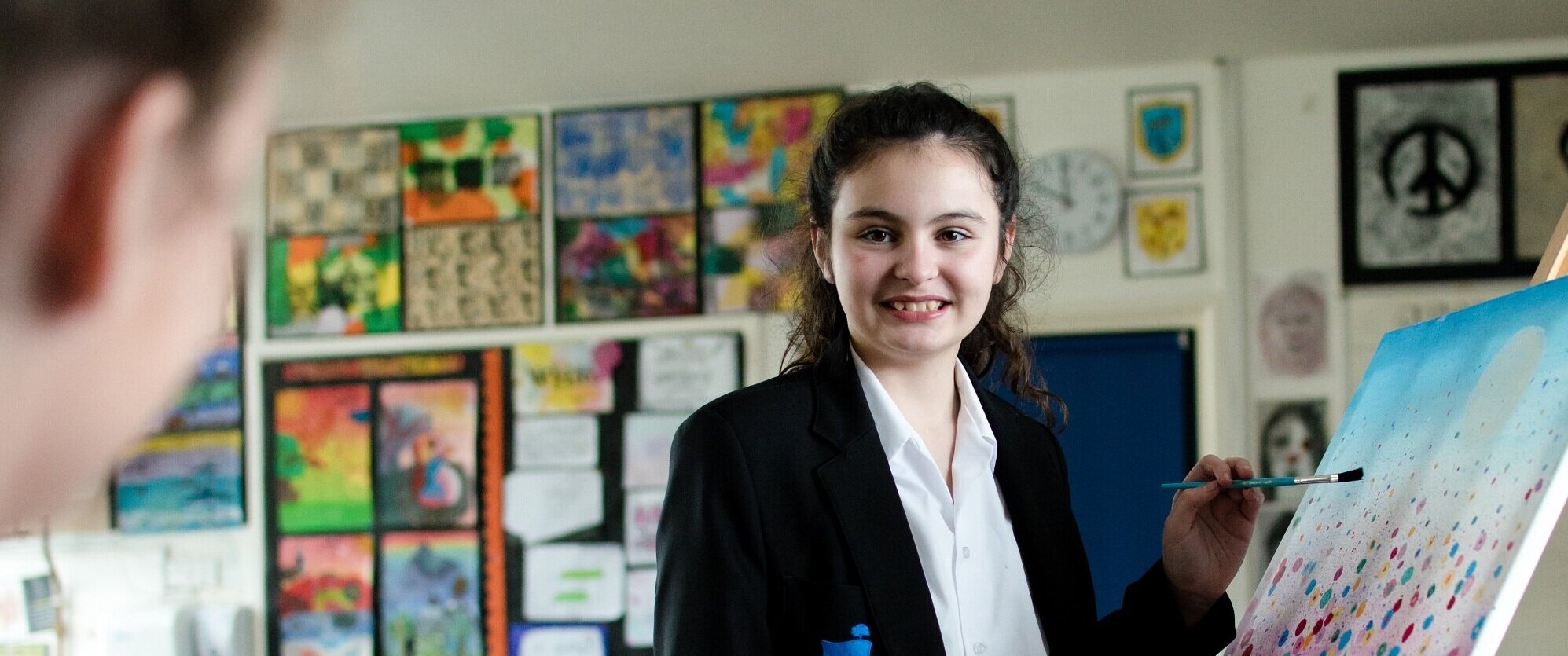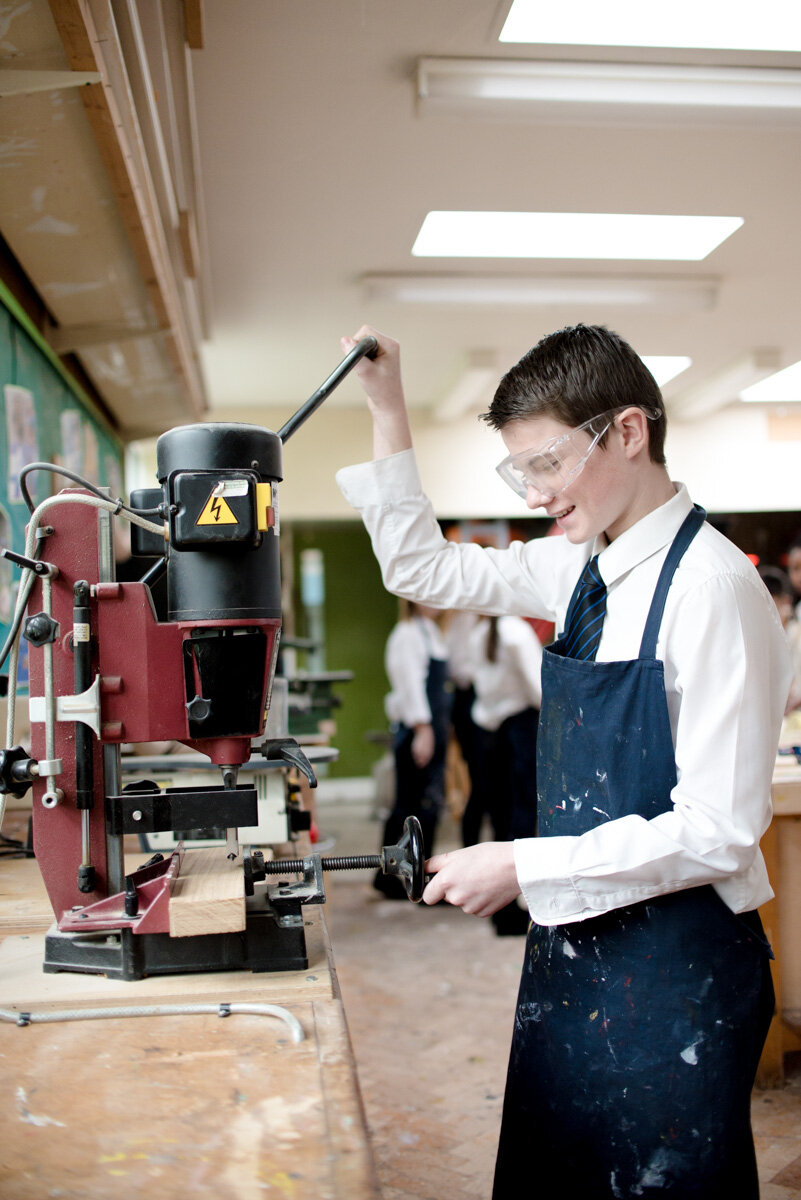
Home > Curriculum and Learning > Design Technology
Design Technology
Within Design and Technology at Whitstone school we offer a unique opportunity in the curriculum for students to identify and solve real problems by designing and making products or systems. Through studying GCSE Design and Technology, students will be prepared to participate confidently and successfully in an increasingly technological world; and be aware of, and learn from, wider influences on design and technology, including historical, social/cultural, environmental and economic factors.
Design Technology enables students to work creatively when designing and making and apply technical and practical expertise, in order to:
demonstrate their understanding that all design and technological activity takes place within contexts that influence the outcomes of design practice
develop realistic design proposals as a result of the exploration of design opportunities and users’ needs, wants and values
use imagination, experimentation and combine ideas when designing
develop the skills to critique and refine their own ideas whilst designing and making
communicate their design ideas and decisions using different media and techniques, as appropriate for different audiences at key points in their designing
develop decision making skills, including the planning and organisation of time and resources when managing their own project work
develop a broad knowledge of materials, components and technologies and practical skills to develop high quality, imaginative and functional prototypes
be ambitious and open to explore and take design risks in order to stretch the development of design proposals, avoiding clichéd or stereotypical responses
consider the costs, commercial viability and marketing of products
demonstrate safe working practices in design and technology
use key design and technology terminology including those related to: designing, innovation and communication; materials and technologies; making, manufacture and production; critiquing, values and ethics
Across the 5 years students will be involved in projects that focus on; designing and producing prototyping concept models or new products, studying and redesigning packaging and looking at the importance of this to a product and company and projects that focus on the built environment, such as architecture, interior design and landscaping.
Throughout these projects students will focus on learning new skills and improving their existing ones which cover:
Understanding how to research effectively including; - consumer research - product analysis - materials and manufacturing research
Designing products using a range of technical drawing techniques and developing annotation skills
Learning a wide range of computer design and computer manufacturing skills
Learning a wide range of hand and machine manufacturing skills
Knowing how to evaluate their own work effectively to make regular improvements and suggestions for improvements
Students who study Design Technology develop their designing, evaluative, practical and problem-solving skills. In Year 7, students learn how to work safely in the workshop as well as a range of ways to communicate their design ideas. Also, in year 7 the students develop an understanding about the consumer and how this will influence their designs. Throughout Year 8 and 9 we develop their 3D drawing skills by hand as well as developing their knowledge of computer aided software for designing. In the workshop the students will begin to use a wider range of hand tools and develop their use of machine equipment. In Years 10 and 11 the students will take their computer aided design skills further by learning to effectively use computer aided manufacturing for some of the project work. They will also learn advanced skills in the workshop to ensure a high quality of accuracy for final products. Also, throughout year 10 & 11 the students are encouraged to develop the evaluative skills to a more in-depth level through product analysis, research and evaluating their own work regularly.

